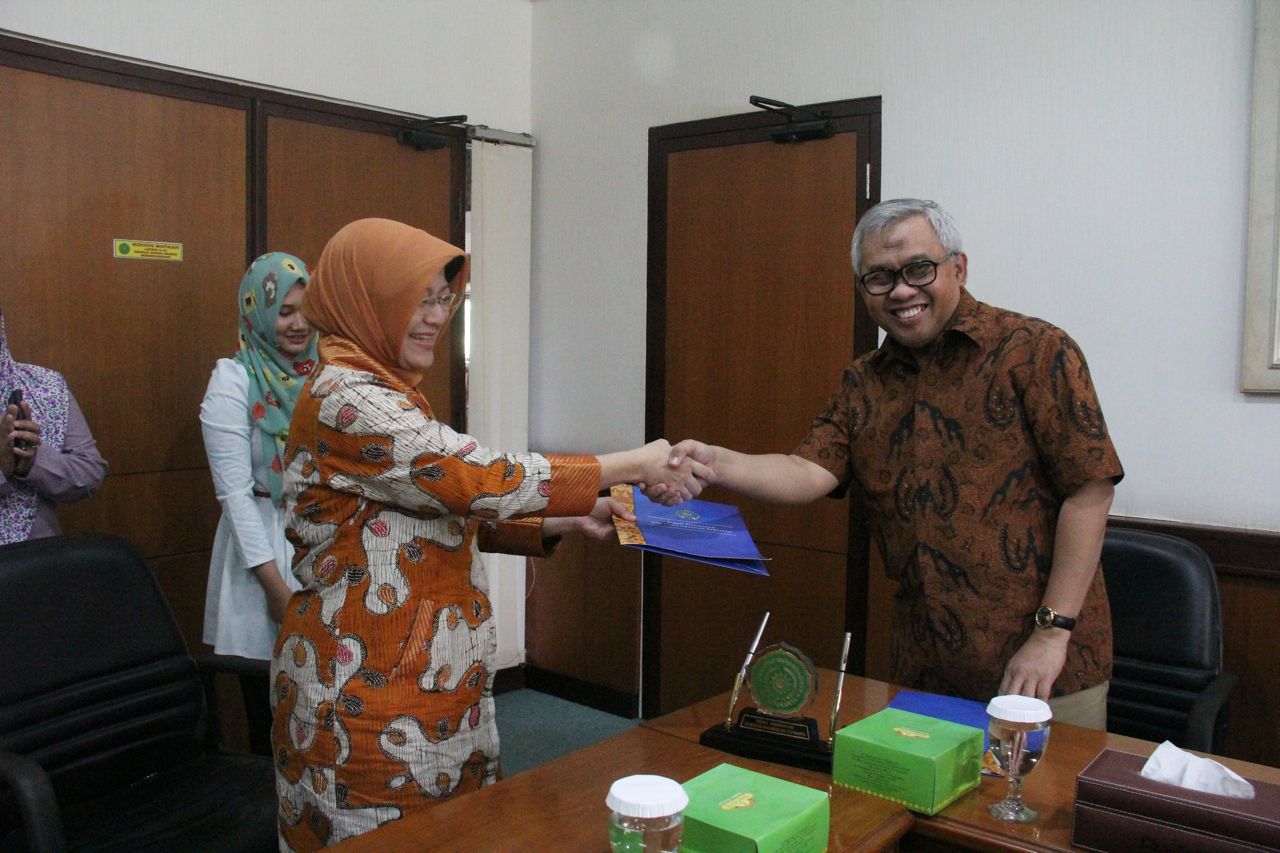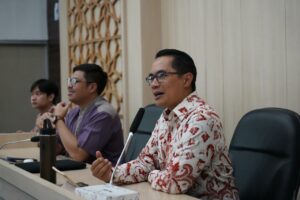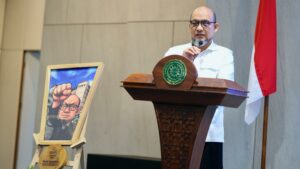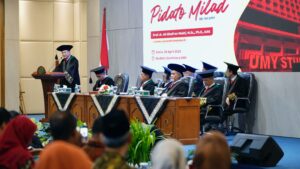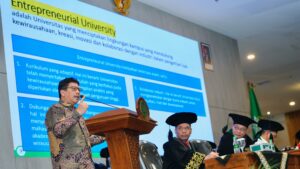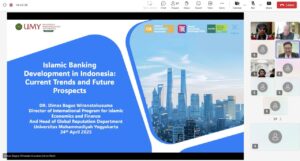International Relations (HI) of Universitas Muhammadiyah Yogyakarta (UMY) cooperated with Policy Research and Development Agency (BPPK) of Ministry of Foreign Affairs of Republic of Indonesia to foster cooperation in research and studies of the establishment of Indonesia-Africa Economic Cooperation Forum. The cooperation was undertaken since the economic cooperation between Indonesia and Africa is quite far from other countries.
In a signing of Memorandum of Agreement (MoA) on Friday (5/2) in meeting room of Rector of UMY, A.R. Facruddin A, floor 5, Head of the BPPK Ambassador Salman Alfarizi informed that cooperation between Indonesia and Africa is only 1/7 of cooperation between India and Africa, and 1/20 of cooperation between People’s Republic of China and Africa. “Since being independent in 1945, Indonesia has had quite many investments with Africa, but cooperation in economic aspect is limited so that research of the cooperation issues is necessary to conduct,” he stated.
Salman inserted that the cooperation is essential for the development and contribution of research and international cooperation which become the state priority to improve the relation among countries, particularly the economic field. “We expect that the research can give contribution to the economic cooperation between Indonesia and Africa. BPPK will provide access for the research, and the other cooperation,” he conveyed.
In addition, Head of International Relations of UMY Dr. Nur Azizah, M.Si. mentioned that the research focus is on trade profile and relation between Indonesia and Africa. “The research aims at finding out supporting data of economic cooperation forum which has been held by Indonesia and Africa,” he informed.
The research will be conducted for six month and will take lesson from Asia regions which have cooperated with Africa. “The research is expected to provide recommendation for policy in Indonesia, for interests of Indonesia in economic cooperation intensification between Indonesia and Africa, and for looking at challenges and strategies to confront the economic cooperation,” Nur ended.
